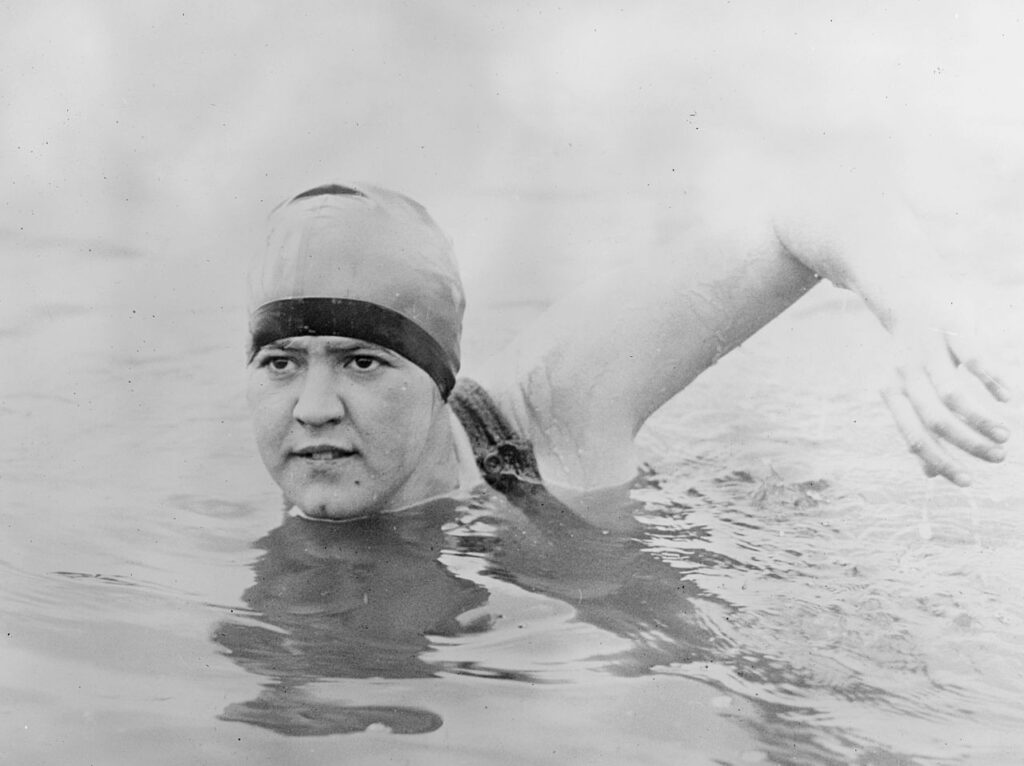Autor: Ewa Kopczyńska (4equality Erasmus+ Projekt)
Pomimo intensywnych działań na rzecz równości płci i licznych inicjatyw zwalczających stereotypy, wciąż dominuje przekonanie, że kobiety są „słabszą” płcią. To sprawia, że wiele kobiet czuje się mniej zmotywowanych do angażowania się w dziedziny tradycyjnie zdominowane przez mężczyzn. Jednocześnie takie przekonanie często służy jako wymówka do niesprawiedliwego traktowania kobiet, ograniczając ich możliwości kariery zawodowej lub udziału w hobby uznawanych za „męskie”.
Ale czy kobiety są naprawdę słabsze od mężczyzn?

Zdjęcie z Freepik
Choć w niektórych aspektach, takich jak siła fizyczna, „przeciętna kobieta” może być uznawana za „słabszą” od „przeciętnego mężczyzny” – badania pokazują, że siła mięśniowa trenowanych kobiet stanowi od 40 do 75% siły ich męskich odpowiedników – każda osoba jest unikalna, a pojęcie „przeciętności” jest mocno uproszczone. Co więcej, kobiety często przewyższają mężczyzn w takich obszarach jak wytrzymałość, odporność na choroby czy zdolność radzenia sobie z traumą[1].
Popularne przekonanie, że kobiety są „słabszą płcią”, opiera się na szkodliwych generalizacjach, które często prowadzą do dyskryminacji. Zamiast oceniać kobiety na podstawie ich indywidualnych umiejętności i osiągnięć, wiele osób kieruje się stereotypowym obrazem „przeciętnej kobiety”. Takie podejście nie tylko pomija wyniki badań, ale także ignoruje imponujące dokonania wielu wyjątkowych kobiet, które niejednokrotnie dorównały mężczyznom, a nawet ich przewyższyły.
Jedną z pionierskich postaci była niezwykle zdeterminowana pływaczka Gertrude Caroline Ederle (1905–2003), która nie pozwoliła, by dyskryminacja stanęła jej na drodze. W 1926 roku zapisała się na kartach historii jako pierwsza kobieta, która pokonała Kanał Angielski – wyczyn uznawany wówczas za niemożliwy dla kobiet. To niezwykłe osiągnięcie wymagało nie tylko zmierzenia się z ogromnym dystansem, ale także z lodowatą wodą, potężnymi falami i kapryśną pogodą, co czyniło to wyzwanie ekstremalnie trudnym. Do tamtego dnia zaledwie pięć osób na świecie zdołało ukończyć ten wyczyn – i wszyscy byli mężczyznami.
[1] https://www.theguardian.com/world/2017/jun/11/the-weaker-sex-science-that-shows-women-are-stronger-than-men

W tamtych czasach wiele osób wątpiło, że kobiety są zdolne do podejmowania tak ekstremalnych wyzwań. Kiedy pierwsza próba Gertrude zakończyła się niepowodzeniem, krytycy szybko ją skreślili, twierdząc, że nigdy jej się nie uda. Zamiast się poddać, Gertrude wzmogła treningi, opracowała nową technikę pływania i zaprojektowała specjalny strój kąpielowy, który pomagał jej lepiej znosić lodowate wody. 6 sierpnia 1926 roku osiągnęła swój cel – przepłynęła 34 kilometry w czasie 14 godzin i 34 minut, bijąc poprzedni rekord ustanowiony przez mężczyznę o niemal 2 godziny (dokładnie 1 godzinę i 59 minut). Mimo trudnych warunków, które wydłużyły jej trasę do około 56 kilometrów, zdołała ustanowić nowy rekord[1].
Było to przełomowe osiągnięcie, które udowodniło, że kobiety są w stanie sprostać każdemu wyzwaniu. Po powrocie do Stanów Zjednoczonych, Gertrude została przyjęta jak bohaterka. 27 sierpnia 1926 roku Nowy Jork zorganizował dla niej huczne powitanie, obsypując ulicę Broadway konfetti. Ponad dwa miliony ludzi przyszło, by ją powitać, tworząc największą i najbardziej spektakularną paradę sportową tamtych czasów. To było również pierwsze takie wyróżnienie dla kobiety, która została doceniona za swoje osiągnięcia w tak wyjątkowy sposób, co zapoczątkowało zmiany w postrzeganiu sukcesów kobiet. Gertrude stała się symbolem siły i determinacji, inspirując wielu do realizacji swoich marzeń i przełamywania barier.
Gertrude Ederle napotykała ogromną dyskryminację w trakcie swojej kariery sportowej, wynikającą z powszechnego przekonania na początku XX wieku, że kobiety były fizycznie i psychicznie słabsze, niezdolne do rywalizowania w wymagających sportach ani dorównywania mężczyznom. Jej osiągnięcie samo w sobie było niesamowite, ale tym, co naprawdę wyróżniało ten sukces, była walka z brakiem wsparcia, w tym także od członków jej drużyny, co przyczyniło się do jej początkowej porażki.
Jeśli jesteś kobietą, czy kiedykolwiek zastanawiałaś się, czy jesteś wystarczająco silna, aby konkurować z mężczyznami w pracy? Historia Gertrudy przypomina nam, że prawdziwa siła nie polega na spełnianiu narzuconych oczekiwań, ale na ich przezwyciężeniu. Twoja prawdziwa moc tkwi w tym, jak radzisz sobie z wyzwaniami i ograniczeniami, a także w tym, ile wysiłku i determinacji chcesz włożyć w realizację tego, co jest dla ciebie najważniejsze.
[1] https://www.britannica.com/biography/Gertrude-Ederle

 English
English Български
Български Ελληνικά
Ελληνικά Português
Português Română
Română